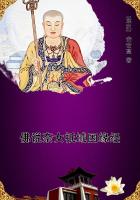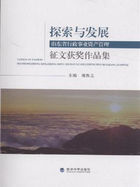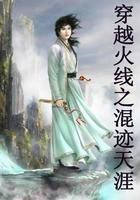The Steamer in difficulties--Elephant hunting--Arrival at Chibisa's--
Search for Lake Nyassa--The Manganja country--Weavers and smelters--
Lake Pamalombe.
Late in the afternoon of the first day's steaming, after we left the wooding-place, we called at the village of Chikanda-Kadze, a female chief, to purchase rice for our men; but we were now in the blissful region where time is absolutely of no account, and where men may sit down and rest themselves when tired; so they requested us to wait till next day, and they would then sell us some food.As our forty black men, however, had nothing to cook for supper, we were obliged to steam on to reach a village a few miles above.When we meet those who care not whether we purchase or let it alone, or who think men ought only to be in a hurry when fleeing from an enemy, our ideas about time being money, and the power of the purse, receives a shock.
The state of eager competition, which in England wears out both mind and body, and makes life bitter, is here happily unknown.The cultivated spots are mere dots compared to the broad fields of rich soil which is never either grazed or tilled.Pity that the plenty in store for all, from our Father's bountiful hands, is not enjoyed by more.
The wretched little steamer could not carry all the hands we needed;so, to lighten her, we put some into the boats and towed them astern.
In the dark, one of the boats was capsized; but all in it, except one poor fellow who could not swim, were picked up.His loss threw a gloom over us all, and added to the chagrin we often felt at having been so ill-served in our sorry craft.
Next day we arrived at the village of Mboma (16 degrees 56 minutes 30 seconds S.), where the people raised large quantities of rice, and were eager traders; the rice was sold at wonderfully low rates, and we could not purchase a tithe of the food brought for sale.
A native minstrel serenaded us in the evening, playing several quaint tunes on a species of one stringed fiddle, accompanied by wild, but not unmusical songs.He told the Makololo that he intended to play all night to induce us to give him a present.The nights being cold, the thermometer falling to 47 degrees, with occasional fogs, he was asked if he was not afraid of perishing from cold; but, with the genuine spirit of an Italian organ-grinder, he replied, "Oh, no; I shall spend the night with my white comrades in the big canoe; I have often heard of the white men, but have never seen them till now, and I must sing and play well to them."A small piece of cloth, however, bought him off, and he moved away in good humour.The water of the river was 70 degrees at sunrise, which was 23 degrees warmer than the air at the same time, and this caused fogs, which rose like steam off the river.When this is the case cold bathing in the mornings at this time of the year is improper, for, instead of a glow on coming out, one is apt to get a chill; the air being so much colder than the water.
A range of hills, commencing opposite Senna, comes to within two or three miles of Mboma village, and then runs in a north-westerly direction; the principal hill is named Malawe; a number of villages stand on its tree-covered sides, and coal is found cropping out in the rocks.The country improves as we ascend, the rich valley becoming less swampy, and adorned with a number of trees.
Both banks are dotted with hippopotamus traps, over every track which these animals have made in going up out of the water to graze.The hippopotamus feeds on grass alone, and, where there is any danger, only at night.Its enormous lips act like a mowing-machine, and form a path of short-cropped grass as it feeds.We never saw it eat aquatic plants or reeds.The tusks seem weapons of both offence and defence.The hippopotamus trap consists of a beam five or six feet long, armed with a spear-head or hard-wood spike, covered with poison, and suspended to a forked pole by a cord, which, coming down to the path, is held by a catch, to be set free when the beast treads on it.Being wary brutes, they are still very numerous.One got frightened by the ship, as she was steaming close to the bank.In its eager hurry to escape it rushed on shore, and ran directly under a trap, when down came the heavy beam on its back, driving the poisoned spear-head a foot deep into its flesh.In its agony it plunged back into the river, to die in a few hours, and afterwards furnished a feast for the natives.The poison on the spear-head does not affect the meat, except the part around the wound, and that is thrown away.In some places the descending beam is weighted with heavy stones, but here the hard heavy wood is sufficient.
"She is leaking worse than ever forward, sir, and there is a foot of water in the hold," was our first salutation on the morning of the 20th.But we have become accustomed to these things now; the cabin-floor is always wet, and one is obliged to mop up the water many times a day, giving some countenance to the native idea that Englishmen live in or on the water, and have no houses but ships.
The cabin is now a favourite breeding-place for mosquitoes, and we have to support both the ship-bred and shore-bred bloodsuckers, of which several species show us their irritating attentions.A large brown sort, called by the Portuguese mansos (tame), flies straight to its victim, and goes to work at once, as though it were an invited guest.Some of the small kinds carry uncommonly sharp lancets, and very potent poison."What would these insects eat, if we did not pass this way?" becomes a natural question.















